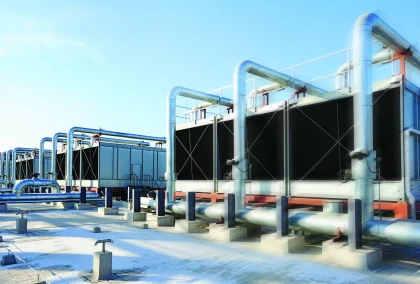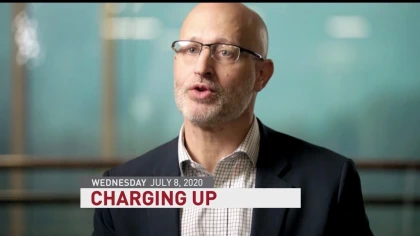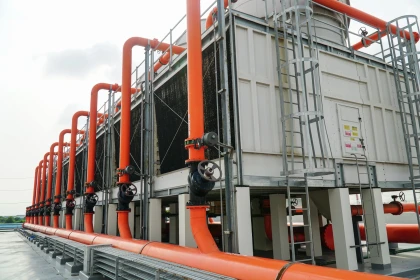Masters Sees Longer-Term Electric Vehicle Demand in Place Despite Pandemic Challenges
Masters Sees Longer-Term Electric Vehicle Demand in Place Despite Pandemic Challenges
Albemarle CEO, Kent Masters, recently talked with The Wall Street Journal about the long-term demand for electric vehicles, despite pandemic challenges. Read the Q&A session below, with Masters and The Wall Street Journal, sent to Dow Jones Newswire subscribers, to learn more.
Author: Micah Maidenberg, Reporter, The Wall Street Journal
The Covid-19 pandemic has caused "hiccups" in the electric-vehicle market, but demand for EVs, as the cars produced by Tesla Inc. and other manufacturers are called, isn't going away, said Kent Masters, chief executive of lithium producer Albemarle Corp.
The pace and timing of demand for electric vehicles is a key question for Albemarle, which extracts lithium, a critical material used in batteries that power electric vehicles, at several sites around the world, including in Chile and Australia. This year, as markets around the world grapple with the coronavirus, electric vehicle sales may fall 14%, according to BloombergNEF data cited by KeyBanc Capital Markets, crimping demand for the soft metal.
Arguments can be made about how fast demand for EVs will rise, but growth, supported by investments by automakers and government policies in some markets, is coming, Mr. Masters said: "We fundamentally believe in the EV story." In April, Mr. Masters was named chief executive at Albemarle and chairman of its board. He recently spoke with Dow Jones Newswires about the lithium market, as well as the Charlotte-based company's other units focused on bromine and catalysts. Here are edited excerpts from that interview:
Dow Jones Newswires: Can you describe your strategic priorities for the company?
Kent Masters: The strategic priorities have not changed. We operate the three businesses, and bromine and catalysts are kind of stable businesses with moderate growth rates--GDP-type [rates], maybe a little better in a normal environment. They're helping us with cash to invest in the lithium business.
DJN: How do you view potential consolidation within the lithium industry?
KM: The growth driven by electric vehicles has changed the dynamics, so the industry is kind of forming a little bit. Consolidation will probably play some part of that. You have start-ups coming in and going out...How do we think of consolidation? In any industry, we'd look for opportunities and as the market leader we would like to be the thought leaders in that process. You've got to balance your capital between the growth that we know we can get from our assets...versus opportunities for acquisitions.
DJN: How do you view the EV market in the near and longer term, and the ripple effect for Albemarle's lithium business?
KM: We think the demand curve may have been pushed out a year, but we fundamentally believe in that same curve. The slope's probably the same but it's been pushed out.
DJN: Can you elaborate on why you do believe in that demand curve--or why that story about EV adoption remains in place?
KM: It's been evolving for quite a while, and it has taken hold significantly in China. The real driver in the U.S. is out a few years but Europe is coming now with incentives...All the major car companies are focused on it. Everyone has plans. They're building plants. They're working out the supply chain. I think it's hard to ignore.
DJN: What kind of government policy in the U.S. could push that demand forward? Are there any policy proposals specifically in the U.S. that Albemarle is supporting?
KM: We are not proposing policies. The way it's playing out is quite helpful for us. China has led the way. Europe is coming in as a major player--they will be the next leg that drives the EV market and lithium from our perspective. We believe North America [will happen] after that. The economics are improving for EVs all the time...Whether you need incentives or not depends on how aggressive the U.S. wants to be about bringing that technology to market. You don't really need those incentives in the U.S. once electric vehicles mature a little bit on the cost curve.
DJN: What effect did the pandemic have on the lithium business?
KM: For lithium specifically, it has pushed out the demand. All the automotive manufacturers shut down for a period of time. Some are coming back now. People that had plans for factories starting up, those were pushed...Supply, whether you want to say it's a function of the pandemic or pricing pressures that were there already...and a lot of projects that were on the books have been canceled. That was exacerbated by the pandemic if not started by the pandemic.
DJN: A lot of observers say the lithium market is glutted. Do you agree with that and what's your sense of the direction of the glut?
KM: There is oversupply at the moment. Part of that is because demand is down [due to] the pandemic but I think there's probably oversupply there anyway. But that demand curve will catch up. It's going to catch up fairly quickly. We see that happening in '22, '23.
DJN: How do you think the lithium marketplace will come more into balance, from an Albemarle perspective?
KM: That will correct as growth shows up into the market. You can't just turn these on. It takes time to add capacity to the market. And we're adding capacity today, and we think when we bring that on we'll pretty much be sold out.
DJN: Let's go back to catalysts and bromine. What's your forecast on how those businesses, given the uncertainty across the U.S. and global economies?
KM: The catalyst business has been hit pretty hard because our primary driver for that business is miles driven and those have almost evaporated. They've come back as economies start to open up but they're not back to where they were. Airline fuel is not the biggest driver of that business but it's a component of it and that's still almost nonexistent. It's going to take a little while for that business to come back to 2019 levels...The bromine business is more diverse...It's really the consumer, people buying cars and refrigerators and computers. When that comes back that business will do well.
DJN: Are you buying shares right now? In May the company said it would halt buybacks.
KM: There's a lot of pent-up demand for projects internally so I don't see us buying back shares in the near term--definitely not until the pandemic is behind us and the lithium market kind of catches up a little bit.
(END) Dow Jones Newswires







